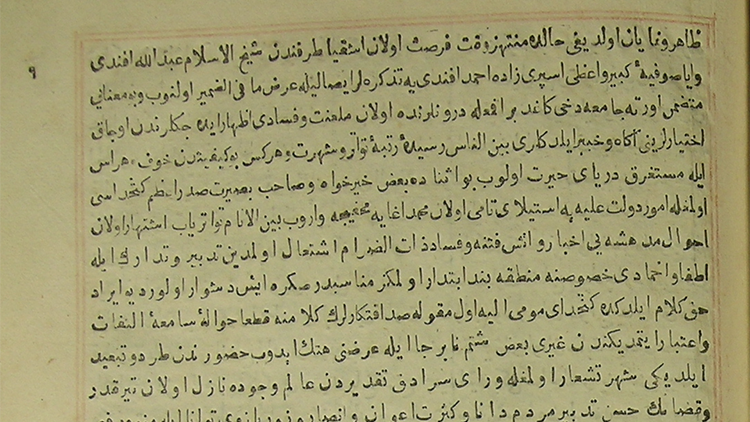Order and Transgression

The research project “Ordnung und Transgression: Divergierende Repräsentationen in osmanischen Texten, 1687–1730” (“Order and transgression: divergent representations in Ottoman texts, 1687–1730”) is funded by the Swiss National Science Foundation in the years 2015–2018.
In 1687, 1703, and 1730 internal conflicts in the Ottoman Empire gave rise to rebellions, which resulted in the deposition of the incumbent Sultan. Numerous Ottoman historiographical accounts represent the events in divergent ways and offer competing interpretations of their significance. They not only reflect the interests of individuals and groups involved, but also dispute about the legitimate social and political order. This research project uses the historiography of the rebellions in order to identify the ways in which late seventeenth- and early-eighteenth-century Ottomans perceived, represented, and constructed social order. To this aim, it analyses chronicles and (additionally) collections of biographies in several respects: How did the authors draw socio-cultural boundaries? How did they perceive transgressions (violations of social boundaries)? What were the social, political, cultural, and religious norms they advocated, and how did they judge perceived violations of norms? As a reference point of historiography, the project draws on political advice literature, which is frequently fairly explicit about social models and values, terms and concepts. The overall aim of the project is to gain a coherent picture of socio-cultural and -political notions of order and systems of norms in the Ottoman elites.
